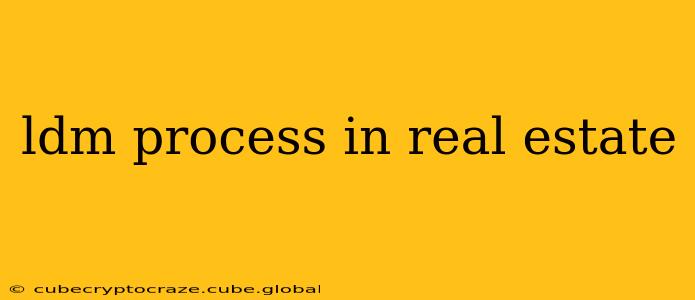The Last Diligence Meeting (LDM) in real estate is a crucial step in the transaction process, marking the final hurdle before closing. It's a comprehensive review of all due diligence documentation, ensuring everything aligns with the agreed-upon terms and conditions. This guide will delve into the LDM process, answering common questions and highlighting its importance for a smooth real estate closing.
What is the Last Diligence Meeting (LDM)?
The LDM is a formal meeting between the buyer's and seller's representatives (typically lawyers, brokers, and other relevant parties) to review all outstanding issues, final documents, and any remaining concerns before the closing date. Its primary purpose is to identify and resolve any discrepancies or ambiguities that could delay or jeopardize the transaction. Think of it as a final check-up before the big day.
What Happens During an LDM?
During the LDM, participants meticulously review items such as:
- Title Report and Insurance: Ensuring the property's title is clear and free of encumbrances, liens, or other issues that could affect ownership.
- Survey: Verifying property boundaries and ensuring there are no encroachments or discrepancies between the legal description and the actual property.
- Inspections: Reviewing reports from home inspections, pest inspections, and any other relevant inspections to confirm that necessary repairs or issues have been addressed.
- Disclosures: Confirming that all required disclosures have been made by both the buyer and the seller.
- Financing: For buyers with mortgages, verifying that financing is in place and ready to close.
- Documents: Reviewing all final contracts, agreements, and closing documents to ensure accuracy and compliance.
Who Attends an LDM?
Attendance typically includes:
- Buyer's representative: Usually a lawyer or real estate agent acting on behalf of the buyer.
- Seller's representative: Usually a lawyer or real estate agent acting on behalf of the seller.
- Lender's representative (if applicable): If a mortgage is involved, a representative from the lender will be present.
- Title company representative: The title company is responsible for ensuring a clear title, and their representative plays a vital role in the LDM.
Why is the LDM Important?
The LDM is vital because it:
- Identifies and resolves potential problems before closing: Catching issues early prevents costly delays and potential litigation.
- Ensures a smooth closing process: By addressing all outstanding items beforehand, the actual closing process becomes significantly simpler.
- Minimizes risks for both buyer and seller: It offers a final opportunity to review the transaction’s details, mitigating potential risks and misunderstandings.
- Provides a clear understanding of the final terms: All parties leave the meeting with a shared understanding of the final terms and conditions.
What if Issues Arise During the LDM?
If problems are discovered during the LDM, the parties involved will work collaboratively to find solutions. This may involve renegotiating terms, requesting extensions, or addressing specific issues identified in the review process. In some cases, the deal may even be terminated if significant and irreconcilable issues emerge.
How Long Does an LDM Usually Take?
The duration of an LDM varies depending on the complexity of the transaction and the number of outstanding issues. It can range from a few hours to a full day.
What Happens After the LDM?
After a successful LDM where all issues are resolved, the transaction proceeds to closing. The closing typically involves the exchange of funds, signing of final documents, and the transfer of ownership.
Is an LDM Always Necessary?
While not always legally mandated, an LDM is highly recommended for all significant real estate transactions. It provides a vital safeguard against unforeseen problems and ensures a smoother, more efficient closing process.
By understanding the Last Diligence Meeting process, both buyers and sellers can confidently navigate this crucial phase of a real estate transaction. Remember, proactive preparation and clear communication are key to a successful LDM and a smooth closing.
